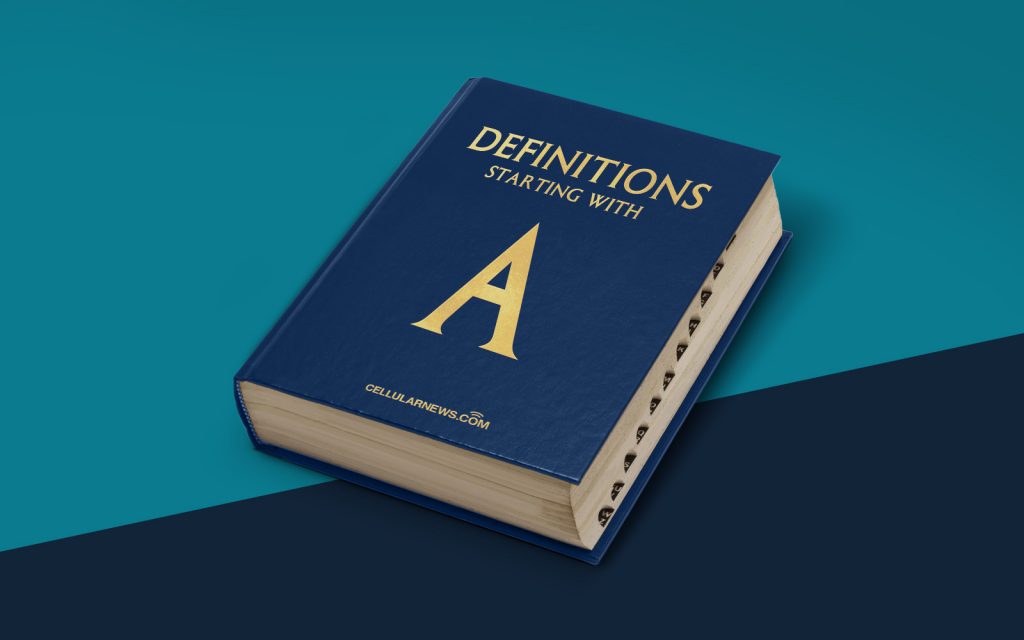
What is Advanced Audio Coding (AAC)? Exploring the Definition
Welcome to our “Definitions” series, where we dive deep into various topics to provide you with clear and concise explanations. In this installment, we’ll be exploring the world of Advanced Audio Coding (AAC). If you’ve ever wondered how audio files are compressed without significant loss in quality, then you’re in the right place! Let’s unravel the wonders of AAC and understand its role in the world of digital audio.
Key Takeaways:
- AAC is an audio compression format that offers high-quality sound at lower bit rates compared to older formats like MP3.
- This widely used audio codec is known for its efficiency, compatibility, and ability to deliver excellent sound reproduction across a variety of devices.
Now, let’s dig deeper into the fascinating world of Advanced Audio Coding.
Developed by the Motion Picture Experts Group (MPEG), AAC is an audio compression format that revolutionized the way we listen to digital audio. It was first introduced in 1997 as the successor to the widely popular MP3 format. AAC’s innovative design allows audio files to be compressed, reducing their size without compromising the quality of the sound.
The main advantage of AAC over its predecessors lies in its ability to deliver high-quality audio even at lower bit rates. This means that the file size is reduced while maintaining a level of audio fidelity that is practically indistinguishable from the original source. Whether you’re listening to music on your smartphone, streaming services, or even in movie theaters, chances are AAC is responsible for the crystal-clear and immersive audio experience.
How Does AAC Work?
AAC achieves its impressive compression performance by utilizing various techniques. One of the key components is perceptual coding, which involves exploiting the limitations of human hearing. By removing sounds that are less likely to be detected by the human ear, AAC can significantly reduce the amount of data required to reproduce the original audio signal. Additionally, AAC employs advanced psychoacoustic modeling that takes into account the intricate details of hearing perception, resulting in a more efficient encoding process.
Another method used by AAC to reduce file sizes is through data compression algorithms. These algorithms analyze the audio data and eliminate redundant or unnecessary information, ensuring optimal efficiency while preserving sound quality.
AAC also supports a wide range of audio frequencies, from low to high, enabling it to accurately reproduce a diverse array of audio content. This versatility has made AAC the preferred audio codec for various applications, including multimedia platforms, mobile devices, digital television, and streaming services.
The Benefits of AAC:
Here are a few notable advantages of using AAC:
- Enhanced Sound Quality: AAC provides exceptional sound quality, allowing listeners to enjoy a rich audio experience.
- Efficient File Size: With AAC’s superior compression capabilities, audio files can be stored and transmitted more efficiently, saving valuable storage space and reducing bandwidth usage.
- Wide Device Compatibility: AAC is supported by a vast array of devices, making it accessible to a broad audience across different platforms and operating systems.
- Better Battery Life: Since AAC files are smaller in size, devices using this format consume less power, resulting in extended battery life.
From your favorite song playing on your smartphone to the immersive soundtracks in movies, Advanced Audio Coding (AAC) plays a significant role in delivering outstanding audio experiences. As technology continues to advance, AAC remains at the forefront, ensuring high-quality audio reproduction across various devices and platforms.
We hope this comprehensive definition of AAC has shed some light on this incredible audio compression format. Stay tuned to our “Definitions” series as we uncover more intriguing topics and delve into the fascinating world of technology and beyond!
